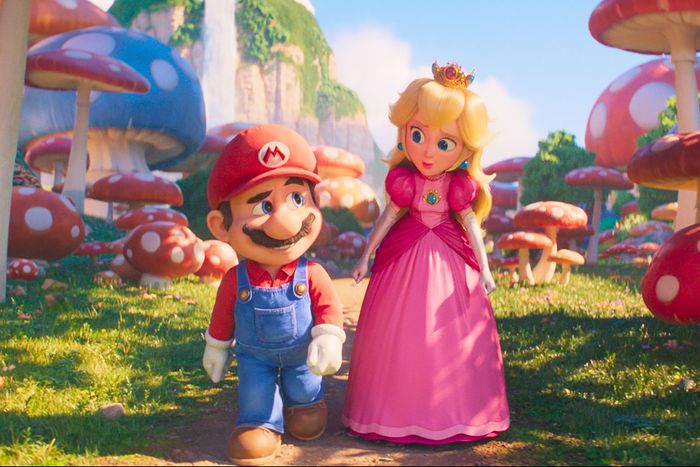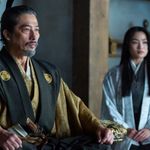
Back in 2005, when shrugs were on trend and the Rock was still willing to play a villain, Universal released an adaptation of the first-person shooter Doom that had been in the works for a decade. It promptly bombed at the box office, mostly because it was, like so many other movies based on video games, terrible. The game franchise is famously heavy on carnage and light on narrative, but the movie had a cumbersome plot involving an ancient Martian civilization and genetic experimentation. And yet, during its climax, Doom did something magnificent. It shifted to the point of view of its hero, played by the un-embarrassable Karl Urban, as his character glided through a labyrinth of industrial hallways blasting infected attackers with a weapon that he held up in the frame, exactly like in the game. The audience howled with laughter, on account of it looking goofy as hell, but that dumb scene in that dumb movie got at why the gap between the two mediums can feel unbridgeable — because the core experiential aspect of one, gameplay, isn’t something that can readily be replicated in the other. It’s tough to adapt something while leaving its essence behind.
Say what you will about Doom — which may be nothing, it isn’t exactly an underappreciated classic — but at least it made a bold choice. The Super Mario Bros. Movie, an almost impressively generic kiddie movie re-skinned with characters and concepts from one of the most famous video game franchises in the world, might as well have been assembled by a focus group. A movie like this doesn’t need to have personality when it’s familiar, filled with bright colors and frenetic action, and, most importantly, the only children’s fare to arrive in theaters in weeks. The Super Mario Bros. Movie only shows the slightest spark of life when it tries to evoke what it’s like to actually play one of the titles it’s inspired by (something that looks a lot less jarring in animation than it does in live action). Not because those few moments are fan service, but because that’s when the movie has a sense of purpose. There’s some cute side-scrolling action in which Mario (Chris Pratt) and his brother Luigi (Charlie Day) navigate a construction site and tag out at the flagpole next to a conveniently castle-themed fast food restaurant on the other side. There are two kart racing sequences, one consisting of a chaotic dash along the wooden tracks running through a jungle and the other a junior Fury Road skirmish high above the ocean on multicolored beams of light that loop vertiginously through the sky.
Then there’s the buoyant scene where Mario, having gone through various pratfall-laden lessons in using power-ups, finally bounds and flies his way through the Mushroom Kingdom landscape to save the day. Of course, Mario has to save the day, because The Super Mario Bros. Movie has 92 minutes to fill and these gameplay bits only take up a fraction of that. A movie needs to be about something, I guess, or at least it can’t be an hour and a half of Mario and company zipping across Rainbow Road with various minions in pursuit. But this particular movie does such a desultory job of assembling all its iconography into something resembling a story that it’s borderline insulting. Mario, who’s introduced living at home and struggling to get the nascent plumbing business he started with Luigi off the ground, is an underdog because… I don’t know, his dad isn’t supportive enough or he’s short or something. Luigi is hastily designated a coward, though he has no qualms about throwing everything into a local commercial in which the siblings are accented superheroes.
When the brothers get separated and sucked through a mysterious pipe into a magical kingdom filled with mushroom, turtles, and whatever Shy Guys are, Mario meets Princess Peach (Anya Taylor-Joy), a winsome blonde whose main quality is being so good at everything that it’s never clear why she needs to train this stubby newcomer who comes crashing into her life, insisting he needs to rescue his missing brother. Luigi, meanwhile, ends up in the clutches of the lovesick Koopa king Bowser, who’s embarked on a campaign of invasion and destruction in a misguided attempt to woo Peach. Jack Black, who voices the burly villain, generates a few laughs through sheer force of will with a musical interlude, though even that bit gets stretched thin. Keegan-Michael Key voices the fast-talking Toad, and Seth Rogen is Donkey Kong, though the names in the credits that really matter are directors Aaron Horvath and Michael Jelenic, who made the Teen Titans Go! series and its own subsequent big screen spinoff, but who show not a trace of that subversive wit here. It’s all dispiritingly rote, aside from bursts of weird vitality whenever the film veers into action out of the games. The act of adaptation is not the problem here. It’s that the only movie everyone involved came up with is a bad one.
More Movie Reviews
- Anyone But You Has More Sex on Its Mind Than Your Average Rom-Com
- An Exploited Neighborhood, Seen Through Children’s Eyes
- Challengers Is Almost a Sexy Movie





